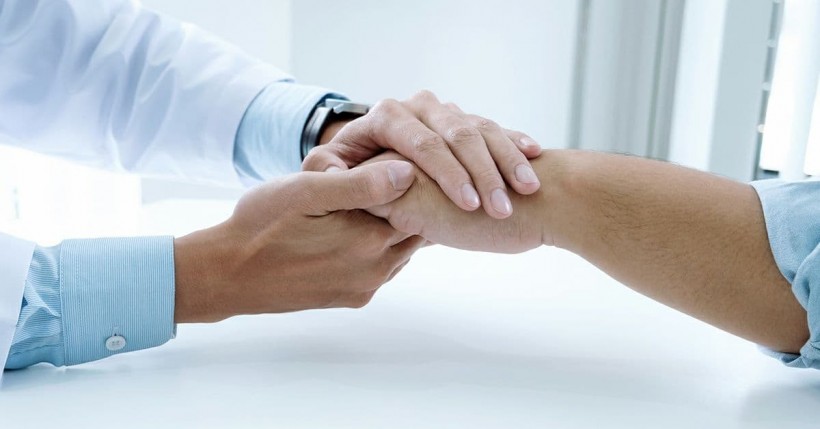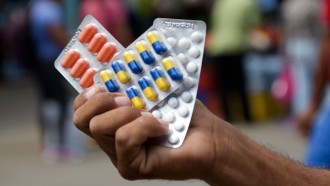
The COVID-19 pandemic has disturbed the daily lives of people across the world. Ordinary human beings live a life that is unsettling and full of turmoil. Still, even the people who are suffering from SUDs (Substance Use Disorders) are in the most vulnerable position because of their unique health and social demands for care. They face harm from the pandemic and the socio-economic consequences, including the alienated health and healthcare, and social systems.
COVID-19 pandemic and the risks for addictive people
The COVID-19 pandemic presents a greater risk of infection, especially for people having SUDs. Such people face anticipation of having adverse consequences of COVID-19. This increased risk is due to the challenges being faced in healthcare delivery and treatment programs and the rehabilitation centers being under lockdown during and after the COVID-19 pandemic. The lockdown and the disruption of the entire rehabilitation program have a potentially negative impact on the people with SUDs.
A survey in China brings forth some shocking data about the relation between the COVID-19 pandemic and the addictive behavior among the people.
-
46.8% increase dependence on Internet use
-
16.6% longer hours of Internet use
-
4.3% severe Internet dependence rose to 23%
-
relapse to alcoholism and smoking abstinence was 19% and 25%, respectively
-
32% of the regular alcohol drinkers and 20% of the regular smokers increased their consumption during the pandemic
This data clearly shows that three addictive behaviors, Internet, alcohol, and smoking, have become a significant crisis and have increased drug addiction risk during COVID-19.
Effect of COVID-19 on drug addicts
Periods of isolation and loneliness can have a negative impact on the physical and mental well-being of a human being. Addictions are already an indication of psychological discomfort, and the current circumstances have worsened the psychological well-being of ordinary people and those suffering from SUDS. The following are some of the horrifying effects -
-
Isolation leaves with it a feeling of depression, anxiety, anger, sleep disorder, and post-traumatic stress disorders, which may not be appropriately estimated due to a lack of specific tools for screening them
-
Also, psychiatric assistance from health professionals is not available due to the temporary concentration of these facilities for COVID-19 treatment
-
The drug addicts who use prescribed sedatives at home may fall prey to narcotics such as new synthetic opioids or designer benzodiazepine, which are available online.
-
The home quarantine can also bring about new challenges for these drug addicts as forced isolation and difficulty to move around can negatively impact the behavior of people suffering from SUDs
-
Many people have resorted to an increase in alcohol consumption, an increase in smoking, and usage of drugs due to stringent measures of isolation during the lockdown
-
Also, there has been a rise in self-harm behaviors and depression along with obstacles in obtaining the drug, which only worsens the troubles of the drug addicts
-
Social distancing can also pose a threat of drug overdose in isolation and the possibility of death
Helpful measures for drug addicts during COVID-19

The following steps or measures can be undertaken to help those who are dictated to drugs, alcohol, and smoking during COVID-19 -
-
Their usual doses of medicines can be prescribed over the phone
-
Efforts for virtual support meetings for people with psychiatric disorders can be undertaken
-
Those people who are undergoing addiction therapy and a possible home medication for the same can be given treatment through virtual meetings
-
Non-profit organizations and associations can help in addressing the issue of homeless and isolated addicts
-
Psychiatric and psychological assistance can be provided to addicts who are undergoing substitution therapy through any possible alternative means
-
Though social distancing is necessary, one of the best and the most powerful way to support each other and avoid a relapse towards addiction and destructive behavior is to remain close to such a person and give encouragement and support to those who are vulnerable
-
Video calls, Internet-based intensive programs, digital programs, and psychiatric advice can go a long way in guiding these addicts towards a better future
-
Rehabilitation clinics across the country can somehow make their valuable services available to save them from spiraling down towards destructive behavior
To conclude, it can be said that COVID-19 and addictions are two separate pandemics that are on the verge of a collision, thereby posing a significant public health threat. Though every possible measure to create public awareness of the delirious effects of SUDs on COVID-19 prognosis, there should also be a consideration given to the resumption of de-addiction services along with the easy availability of prescription drugs.
* This is a contributed article and this content does not necessarily represent the views of techtimes.com





